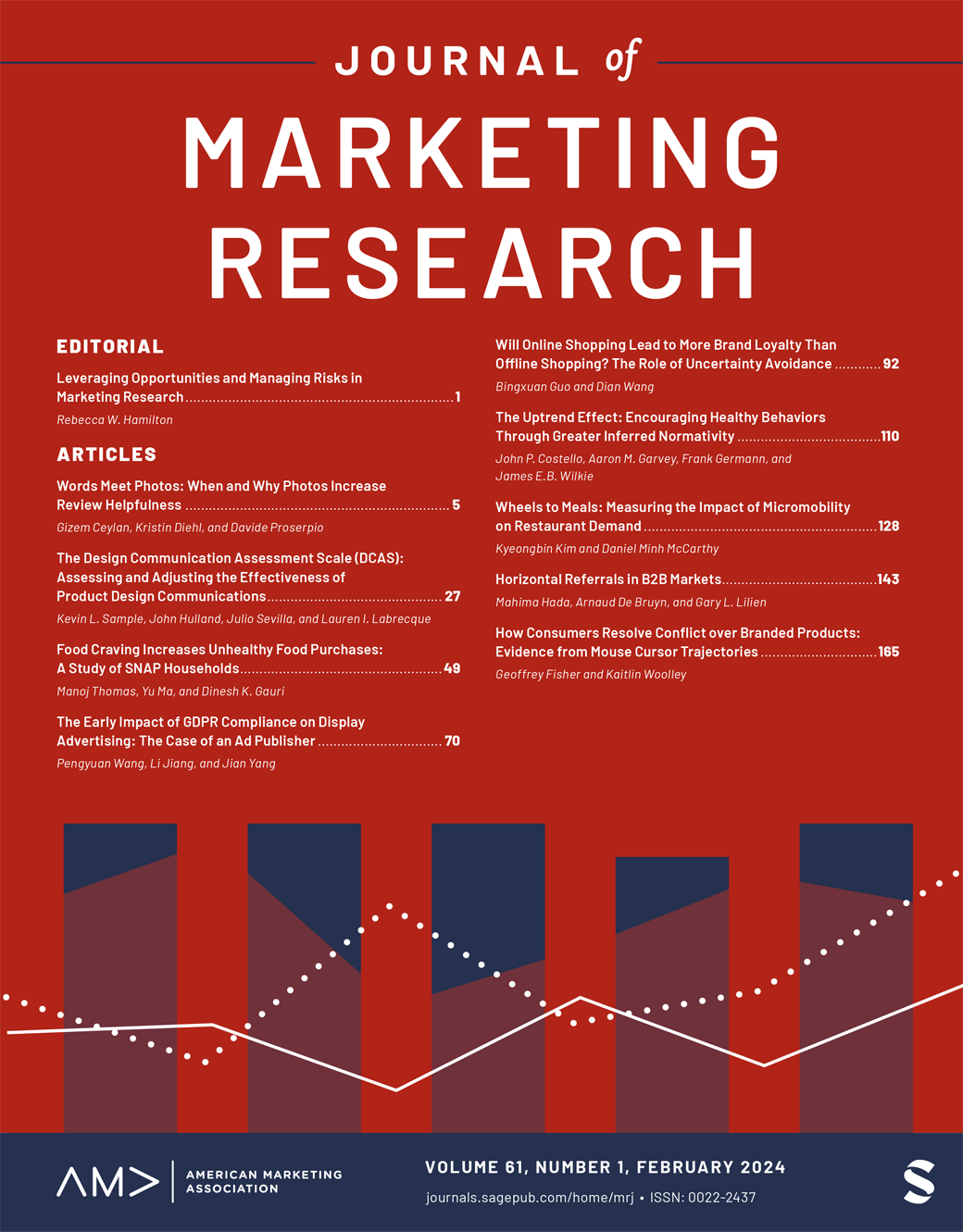EXPRESS: Metaphor-Enabled Marketplace Sentiment Analysis
IF 5
1区 管理学
Q1 BUSINESS
引用次数: 0
Abstract
Textual data requires an analytical tradeoff between breadth and depth. Automated approaches locate patterns across large swaths of data points but sacrifice qualitative insight because they are not well equipped to deal with context-determined ways to express meaning like figurative language. To strengthen the power of Automated Text Analysis (ATA), researchers seek hybrid methodologies where computer-augmented analysis is combined with sociocultural researcher insights based on qualitative textual interpretation. This article demonstrates a new method, that the authors term Metaphor-Enabled Marketplace Sentiment Analysis (MEMSA). Building on existing ATA methodologies linking word lists to sentiments, MEMSA adds metaphors which associate words or phrases across domains. Using MEMSA, researchers can leverage the sentiment potential of these located metaphors and scale insights to the level of big textual data by employing a dictionary approach enhanced by one unique useful linguistic property of metaphors: their predictable structure in text (something is something else). This article shows that metaphors add associative detail to sentiments revealing the targets and sources of sentiments that underlie the associations. Understanding nuanced market sentiments allows marketers to identify sentiment-based trends embedded in market discourse toward better formulating, targeting, positioning, and communicating value propositions for products and services.EXPRESS:基于隐喻的市场情绪分析
文本数据需要在广度和深度之间进行分析权衡。自动化方法在大量数据点中定位模式,但牺牲了定性的洞察力,因为它们不能很好地处理上下文决定的方式来表达意义,比如比喻性语言。为了加强自动文本分析(ATA)的力量,研究人员寻求混合方法,其中计算机增强分析与基于定性文本解释的社会文化研究人员见解相结合。本文提出了一种新的市场情绪分析方法——基于隐喻的市场情绪分析(MEMSA)。MEMSA建立在现有的ATA方法的基础上,将单词列表与情感联系起来,增加了跨域关联单词或短语的隐喻。使用MEMSA,研究人员可以利用这些定位隐喻的情感潜力,并通过使用词典方法将洞察力扩展到大文本数据的水平,这种方法由隐喻的一个独特有用的语言特性增强:它们在文本中的可预测结构(某物是另一物)。这篇文章表明隐喻增加了情感的联想细节,揭示了情感的目标和来源。了解细微的市场情绪可以让营销人员识别市场话语中嵌入的基于情绪的趋势,从而更好地制定、定位、定位和沟通产品和服务的价值主张。
本文章由计算机程序翻译,如有差异,请以英文原文为准。
求助全文
约1分钟内获得全文
求助全文
来源期刊

Journal of Marketing Research
BUSINESS-
CiteScore
10.30
自引率
6.60%
发文量
79
期刊介绍:
JMR is written for those academics and practitioners of marketing research who need to be in the forefront of the profession and in possession of the industry"s cutting-edge information. JMR publishes articles representing the entire spectrum of research in marketing. The editorial content is peer-reviewed by an expert panel of leading academics. Articles address the concepts, methods, and applications of marketing research that present new techniques for solving marketing problems; contribute to marketing knowledge based on the use of experimental, descriptive, or analytical techniques; and review and comment on the developments and concepts in related fields that have a bearing on the research industry and its practices.
 求助内容:
求助内容: 应助结果提醒方式:
应助结果提醒方式:


